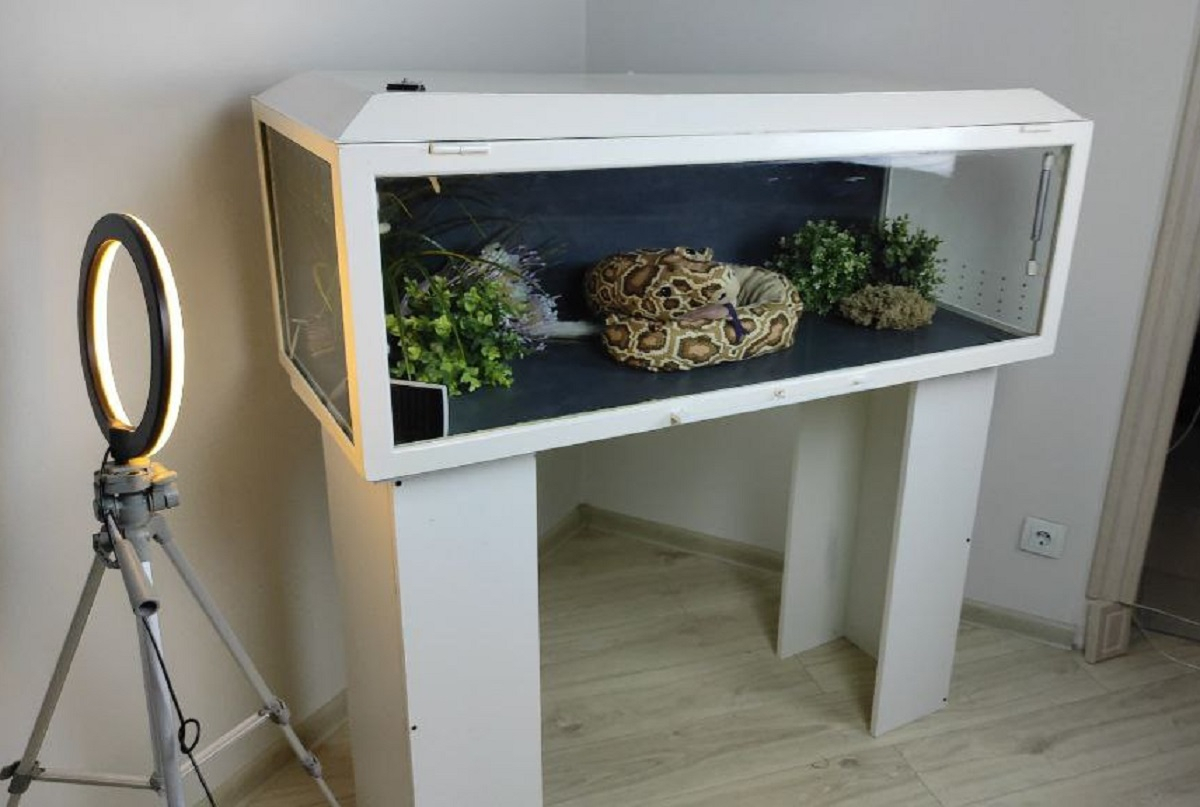Smart terrarium and virtual laboratories: the finalists in the SPbU Start-up − 2023 contest present their projects
Among the finalists in the SPbU Start-up − 2023 contest are several digital technology projects, including: innovative software and automated control systems that can be used in animal care and education.
A team that unites early-career researchers from Saratov State Vavilov Agrarian University and Povolzhsky Institute of Management of the Russian Presidential Academy of National Economy and Public Administration (RANEPA) are developing a virtual learning space. Their project aims to simplify the process of learning by optimising laboratory classes and student laboratory works in science and engineering disciplines, such as: physics, chemistry, and engineering. The team’s main focus is to address urgent issues of inadequate school facilities in the regions of Russia, such as: lack of quality equipment; insufficient funding; and outdated tools and machinery.
We think the best solution to the challenge that schools and colleges are facing now is digital twins; in particular, creating virtual models of electronic laboratory benches and self-driving virtual laboratories. Our virtual laboratory system also includes: lectures; videos; and learning materials in text format.
Sergei Eliseev, Captain of the team
A lab assignment in a digital learning environment begins with learning about safety and a sequence of steps to complete the task using the virtual equipment correctly. The whole process is monitored by a teacher and a special invigilation system that detects cheating attempts and counts the number of retry attempts for a failed task. ‘This approach provides several benefits for teachers and students. More specifically, it enables the teacher to assess the students’ work objectively. Also, it facilitates and promotes students’ learning. Students are able to spot their own weaknesses and knowledge gaps and then apply effort to learning the material where those gaps are identified,’ explained Sergei Eliseev, Captain of the team.
Read the following articles in the series "SPbU Start-up − 2023" that will feature other finalist teams and innovative projects in: Information Technology; Artificial Intelligence; Agriculture; and other fields.
The proposed virtual laboratory system has a few more benefits. First of all, there is no need to buy expensive equipment. Next, students will gain practical skills for use in real-life situations. Also, no less important are the opportunity to analyse individual mistakes and to create a personalised, student-centred learning environment. The virtual laboratory system is designed for high school students and for students in the system of secondary vocational education.
In future, the team is planning to develop targeted courses for final-year school students. The course programme will combine both theoretical and practical training, aiming to help students prepare for the Unified State Exams. Sergei Eliseev also announced his intention to approach the Minister of Digital Development, Communications and Mass Media of the Saratov Region with a view to introducing the virtual laboratory system in Russian schools.
The Captain of the team and the mastermind behind the idea of digitised laboratory benches for schools is Sergei Eliseev. The leading developer of the start-up project is Arkadii Kliuchikov, who is responsible for the development of algorithms, software and functional Unit tests in various programming languages. Filipp Belov is the team’s science and technology advisor, responsible for methodological guidance and the design of the course programmes. Also, he interacts with the school students and collects their suggestions on the improvement of the system. Mark Tsagareishvili is a 3D designer. He creates three-dimensional digital models and develops the interface design. Iurii Grepechuk focuses on data analysis and algorithms for improving the learning outcomes. Also, he helps to create models for the project.
Another finalist team in the contest of student innovative projects "SPbU Start-up — 2023" has presented a digital technology project, which aims to ensure the safety and comfort of reptiles kept in terraria. In essence, the development is an integrated system that will regulate air temperature and humidity and maintain cleanliness in the terrarium ecosystem. The system can be controlled remotely using a specially developed mobile application.

‘Most terraria that are currently on the market are easily breakable and not fully automated. Indeed, there are some automated reptile enclosures overseas, but their systems only monitor the set parameters and send the data to a mobile device, but they do not have remote control options,’ said Inna Trubitsyna, Captain of the team.
According to Inna Trubitsyna, the majority of commercially available terraria contain a large number of plastic elements. This, combined with the UV lights, reduces the lifetime of the enclosure and has a negative impact on the health of the reptiles. Loose fixtures can injure the animal, while toxic substances in some materials used for enclosures, such as laminated chipboard, can cause cancers. The automated terrarium developed by the team is made of environmentally friendly materials, contains removable glass elements and is easy to transport.
The start-up team unites representatives of three different universities in St Petersburg: ITMO University; St Petersburg University; and St Petersburg State University of Veterinary Medicine. Inna Trubitsyna, Captain of the team and marketer, and Anastasiia Kurganskaia, the team’s researcher and analyst, — are students at UTMO University. Sergei Suslov, a student at St Petersburg University, is responsible for software and verification of compliance with the veterinary animal welfare regulations. Valeriia Martynova, a student at St Petersburg State University of Veterinary Medicine, is responsible for communication with partners and technical specifications for the product.
At present, the team is on the final stage of the development of the first prototype. They are finalising the technical configuration of the terrarium; implementing the software; and integrating the electronic components into the enclosure. In future, they are planning to test the safety of the product; set up the production; and take part in the Reptilium trade fair, one of largest fairs featuring terrarium animals in Russia.

